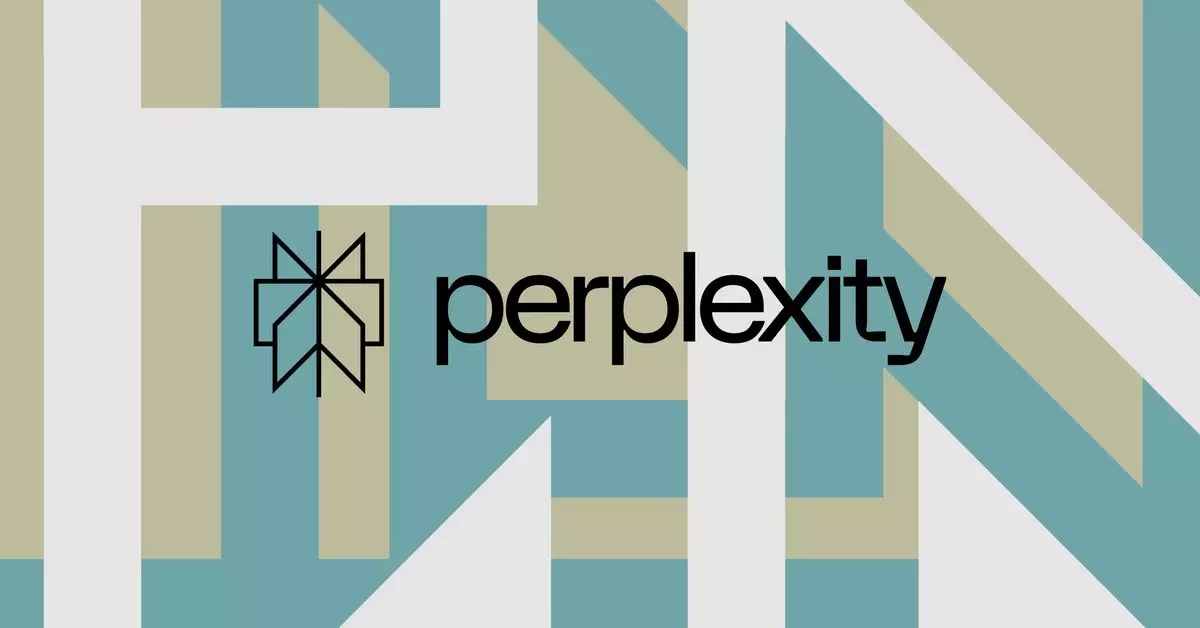The rapid advancement of artificial intelligence (AI) technologies has opened new frontiers for how information is accessed and utilized. This evolution, while fostering innovation and efficiency, has also ignited fierce debates around intellectual property rights, as exemplified by the ongoing legal tussle between AI startup Perplexity and media conglomerate News Corp. Their conflict underscores a growing tension between tech and traditional media, raising critical questions about ownership, copyright, and the future of information dissemination.
Perplexity, an AI-driven search engine, has recently faced scrutiny after allegations surfaced that it scraped content from various sources without proper authorization. News Corp, which owns influential platforms such as the New York Post and The Wall Street Journal, accuses Perplexity of wholesale content copying, resulting in a substantial legal battle. In a blog post addressing the lawsuit, Perplexity contends that traditional media companies want to monopolize the information sphere, suggesting that they believe “publicly reported facts are owned by corporations.” This assertion touches a nerve; it reflects broader concerns about the control of information in the digital age and highlights a critical dichotomy in how facts are perceived in the realm of ownership and copyright.
A fundamental aspect of the dispute lies in the distinction between facts and the expression of those facts. In legal terms, while facts themselves cannot be copyrighted, the specific manner in which they are presented is protected under copyright law. News Corp’s litigation appears to be focused on this nuance, arguing that Perplexity has excessively replicated its journalists’ expressions — the storytelling and analysis that give life to the facts. Forbes has also chimed in, claiming that Perplexity’s outputs bear striking similarities to their own content, raising valid concerns about the integrity of original journalism. Consequently, this raises the question: How can AI responsibly navigate the fine line between utilizing factual information and infringing on the creative expressions of those facts?
In a striking counterattack, Perplexity proposed that the growing feud represents not just a legal disagreement but a fundamental misunderstanding between media and technology. The company maintains that the current state of affairs is “shortsighted” and “self-defeating” for both sides. A notable aspect of this response is Perplexity’s emphasis on collaboration rather than confrontational approaches. The startup has highlighted initiatives like its revenue-sharing program with established publications, indicating a willingness to contribute positively to the media ecosystem. Such moves suggest that there may be pathways to coexistence and mutual benefit, urging traditional media to adapt to the realities of the information age while acknowledging the value of its original content.
The fracas between Perplexity and News Corp signals a broader dilemma within the landscape of digital media and AI. As AI technologies advance, they challenge centuries-old business models and the traditional distribution of information. News Corp’s stance echoes a sentiment held by many media enterprises grappling with the meteoric rise of tech giants that leverage AI for content creation and distribution. The implications of their legal battle extend beyond the parties involved; they raise critical questions about the sustainability of journalism, the ethical use of AI, and how society values original content in an era where duplication is effortless.
The ongoing struggle between Perplexity and News Corp embodies the deep-seated tensions that characterize the interplay between technological innovation and intellectual property rights. As AI continues to redefine the way information is managed and consumed, all stakeholders—tech startups, traditional media, and audiences—must grapple with the implications of these changes. Finding a path forward will require dialogue, adaptation, and a collective commitment to ensuring that both innovation and originality are respected and preserved in this digital era. The outcome of this legal battle may well set critical precedents that will shape the relationship between AI and media for years to come.

